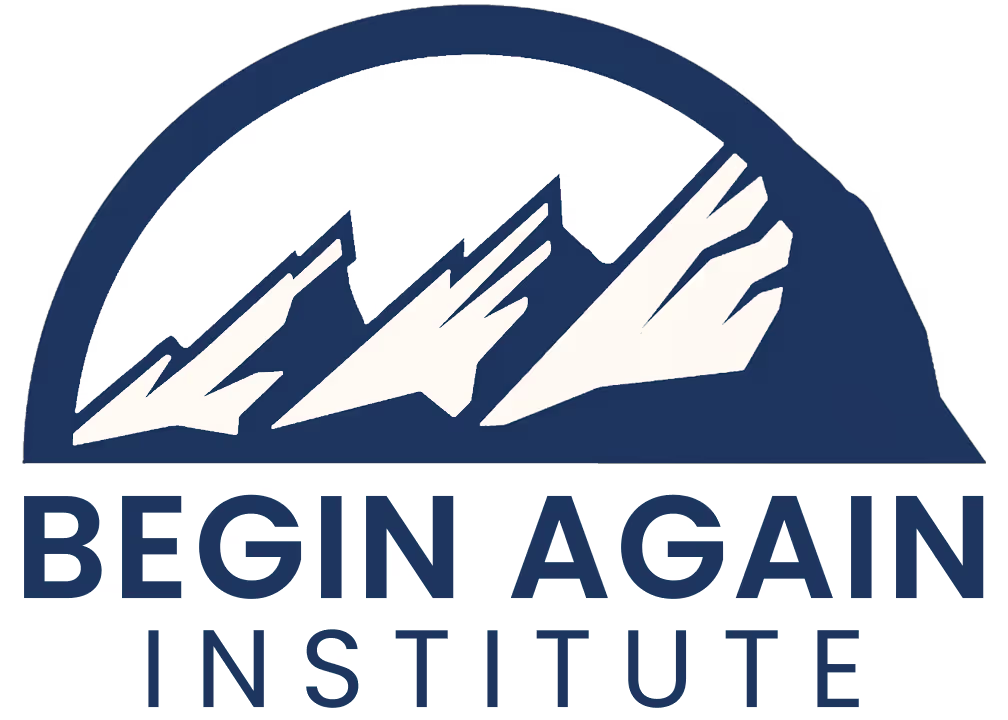A Guide to Overcoming Sexual Addiction


It’s difficult to pinpoint when a sex addiction forms. How does a habit become a dependence that controls your life? While sexual thoughts and behaviors are expected, in excess, they cause distress.
If sex addiction affects your health, relationships, and daily life, it may be time to seek sex addiction treatment.
Whether your habit started years ago or recently, there is always an opportunity for overcoming sexual addiction.
Understanding Sex Addiction
Sex addiction is an uncontrollable, compulsive need to focus on sexual activities that cause distress to your life. You may experience a craving similar to other addictions like those to drugs or alcohol. It causes strain on daily activities, health, relationships, jobs, or other regular aspects of life.
Trauma causes sex addiction, typically through experiences earlier in life. If you weren’t able to process or cope with the trauma, you might turn to temporary vices, like sex, to deal with the negative emotions. Sex addiction is an intimacy disorder. It stems from the fear of feeling close to another person.
When you engage in sexual activities, your brain releases the neurotransmitter dopamine, a chemical that causes pleasure. Similar to drug addiction, sex triggers your brain’s reward system. Then, you begin to experience a craving for this reward. Your brain starts associating this feeling with power over your own life and pleasure you can’t get elsewhere. But as you train your brain, your need for sex gets out of your control.
Signs of Sex Addiction
How do you know if you have a sex addiction? It’s best not to try to diagnose yourself. However, you can know whether it’s time to seek professional mental health assistance by understanding the signs of sex addiction.
Common signs of sex addiction include:
- Obsessive sexual behavior that negatively impacts other aspects of life
- Failure to change sexual behavior, despite recognizing the negative consequences and wanting to stop
- Having non-intimate sex with strangers or sex workers, compulsive masturbation, or porn use that escalates over time
- Feeling depressed or shameful about behaviors and inability to control urges
- Avoiding activities that don’t include sexual outlets, including daily responsibilities and social events
- Engaging in risky sexual behaviors such as voyeurism, exhibitionism, or having unprotected anonymous sex
- An inability to maintain meaningful relationships or an aversion to intimacy
Why It’s Vital to Overcome Sex Addiction
Sex addiction can significantly impact your quality of life. From relationships to health and safety, sex addiction can quickly grow out of control and be detrimental to your well-being.
Effects of sex addiction can include:
- Physical Health Issues. Risky sexual behavior can sometimes result in physical health consequences like sexually transmitted diseases.
- Altered Self-Esteem. Those experiencing a sex addiction often feel guilt and shame about it. It can cause severe distress to your emotional and mental health and deprive a person of their self-esteem and self-concept.
- Damaged Relationships. Sex addiction can harm your relationships with loved ones. Sometimes, people experiencing a sex addiction seek sexual gratification outside of their relationship, breaking trust with their partner. Sex addiction can also affect friendships. Some people may feel as if they are living a double life, making it challenging to form honest friendships. They also withdraw from others, harming relationships.
- Legal and Financial Problems. Addiction only gets more intense. As the need for more intense experiences increases, so does the risk, which is why some people turn to expensive or illegal activities to fulfill their needs.
Sex addiction harms all of the person’s intimate relationships, including those with romantic partners, family members, and friends, said Matt Wenger, Clinical Director at Begin Again Institute.
“People with sex addiction usually feel isolated and lonely. They need connected relationships but are unsure how to foster them. They’re crippled by shame and past traumas and hide or put on personas to protect themselves from rejection.”
Addiction permanently changes a person’s neurobiology, so once you have an addiction, you’ll always be attending to it in some form, Matt said. But you can still recover and live a fulfilled, sober life.
Overcoming Sexual Addiction
Addiction can be challenging to overcome, but you don’t have to do it alone. Isolating yourself can make it more difficult to recover. Surround yourself with trusted friends and family members you can confide in who can empower you on your recovery journey.
To help overcome a sex addiction:
- Delete the contacts of any people who might tempt you
- Avoid using drugs or alcohol
- Have an accountability partner to keep you on track
- Join a support group to meet people you can relate to
- Develop healthy coping skills, so you don’t default to negative patterns
Most of all, be honest. Being transparent with yourself, your loved ones, and a mental health professional will make a big difference in your recovery journey. If you can’t be honest with yourself about the addiction and how it’s affecting you, it will be difficult for you to accomplish sobriety.
If you feel your sex addiction has evolved beyond your control, you may benefit from seeking help at a treatment center. Begin Again Institute offers specialized programs for overcoming sex addictions that work to treat the cause, not the symptom. Our experienced counselors approach treatment from a trauma-informed perspective to uncover the root cause of the addiction and unlearn behaviors.
Once someone receives sex addiction treatment for trauma or other issues that cause it, Matt said their cravings begin subsiding in about six to eight weeks and continue to lessen the longer they’re sober.
Treatment Options
Recovering from sex addiction requires addressing the root of the problem, not just treating the symptoms. There are various treatment options that can help you manage sexual addiction, regain control of your impulses, and live a life of lasting recovery.
Treatment options include:
- Psychotherapy. Cognitive Behavioral Therapy (CBT) allows you to identify triggers and teaches you how to alter your behavior. The treatment encourages replacing negative sexual behaviors with healthy thought patterns toward sex. It also helps introduce healthy, non-sexual activities that you can default to during times of stress or boredom. CBT is effective in treating sex addiction, including decatastrophizing sexual thoughts and activities.
- In-Patient Treatment. An in-patient treatment center can help you remove the stressors of daily life while you work with mental health professionals on healing and recovery. In-patient treatment also addresses any additional mental health issues that may exist aside the addiction.
- Intensives. Intensives help you become steeped in the work of recovery for a short, intensive healing period.
- Support Groups. Sex addiction can feel incredibly isolating, but millions of Americans experience it every day. Finding a supportive community can help you manage your addiction by providing accountability, decreasing shame and stigma, and finding support in your healing journey.
With any kind of treatment, you get out of it what you put in, Matt said.
“You have to be committed. The outcomes depend on what you want when you come in. You’re going to get out of it exactly what you want to get out of it.”
Finding the Right Program
If you choose to enter a recovery program, research different treatment centers to find what best fits your needs. A program that treats the root of the issue, not just the symptoms, is more likely to result in long-lasting recovery.
Seek a program that offers a certified sex addiction therapist (CSAT). These mental health professionals have highly specialized knowledge to help people experiencing sex addiction. A CSAT uses trauma-informed treatments to uncover the root causes of the addiction and help you deal with them.
If you are looking for a program that makes recovery feasible for your schedule and your life, consider a shorter intensive, like those offered through Begin Again Institute. You will get access to trauma-focused therapy, group therapy, and 24/7 care that can help you jumpstart your recovery.
“An intensive program can bring new levels of healing,” Matt said. “It also can give you a running start with levels of healing that you can achieve down the road.”
You may be seeking a higher level of care with an extended curriculum. A residential program can offer the same specialized care as an intensive but with more time to uncover early developmental trauma, discover replacement behaviors, and establish healthy habits. Some longer-term programs may also offer care for substance use or other mental health disorders coupled with sex addiction.
Entering a treatment program is a big step, but it’s a brave step toward lasting recovery. Remember that healing requires honesty and vulnerability. Choose a treatment program that has a nonjudgmental philosophy, so you can feel safe and cared for in your recovery.
Tips for Avoiding Relapse
Unfortunately, once you have a sex addiction, it’s always part of you. You’re always in recovery and working to stay sober. Many people with sex addictions relapse, but being in recovery means you go right back to doing the work of sobriety.
“Relapse is a part of recovery. When it does occur, it is usually around periods of high stress or trauma triggers,” Matt said. “The best steps to avoid relapse are to engage in ongoing trauma therapy, maintain a rigorous recovery program, engage in authentic and supportive communities of other recovering addicts, and live a life of transparency.”
Other ways to avoid relapse include:
- Develop Your Support Network. Surround yourself with trusted friends and family who will support and comfort you during your recovery journey.
- Avoid Triggers. Recognize the people, places, and situations that may compromise your healing. You may need to alter your schedule, commute, or daily activities to help you stay on track.
- Schedule Your Day. Lacking a schedule can leave space for slip-ups. Plan your activities and responsibilities ahead of time, so you don’t have the opportunity for old habits.
- Plan for Setbacks. Don’t beat yourself up over a relapse. You can always start again, no matter how many setbacks you may have. Develop a plan to help you get back on track if a relapse occurs.
- Find New Hobbies. Addiction has likely taken up much of your time and energy. It’s important to find new habits or activities that you enjoy as a replacement.
- Focus on Your Goals. Recovery isn’t easy. You may feel frustrated by your progress, but even baby steps are steps forward. You started the road to recovery for a reason. Don’t give up.
You Are More Than Addiction
Sex addiction doesn’t define you. There is always an opportunity to get help. At Begin Again Institute, we commit to trauma-informed and non-judgmental treatment, so you’ll always feel safe on your journey to overcoming sexual addiction.
Take back your life starting now. We’ll provide the tools you need to heal, rebuild, and live a life of purpose and authenticity. You just have to take the first step. Contact and visit us today to learn more.
Test Intensive Date
We get right to work, so you can get back to life.
“Begin again helped me jumpstart my healing. It’s like
a years worth of therapy in one trip.”


